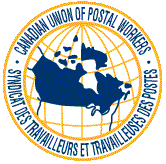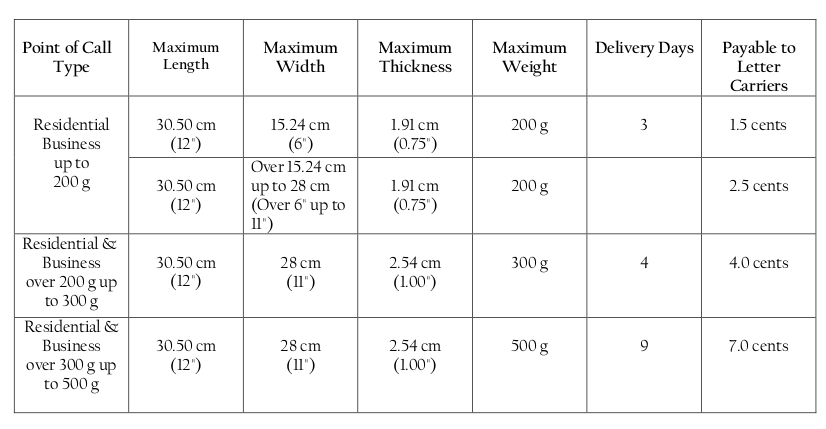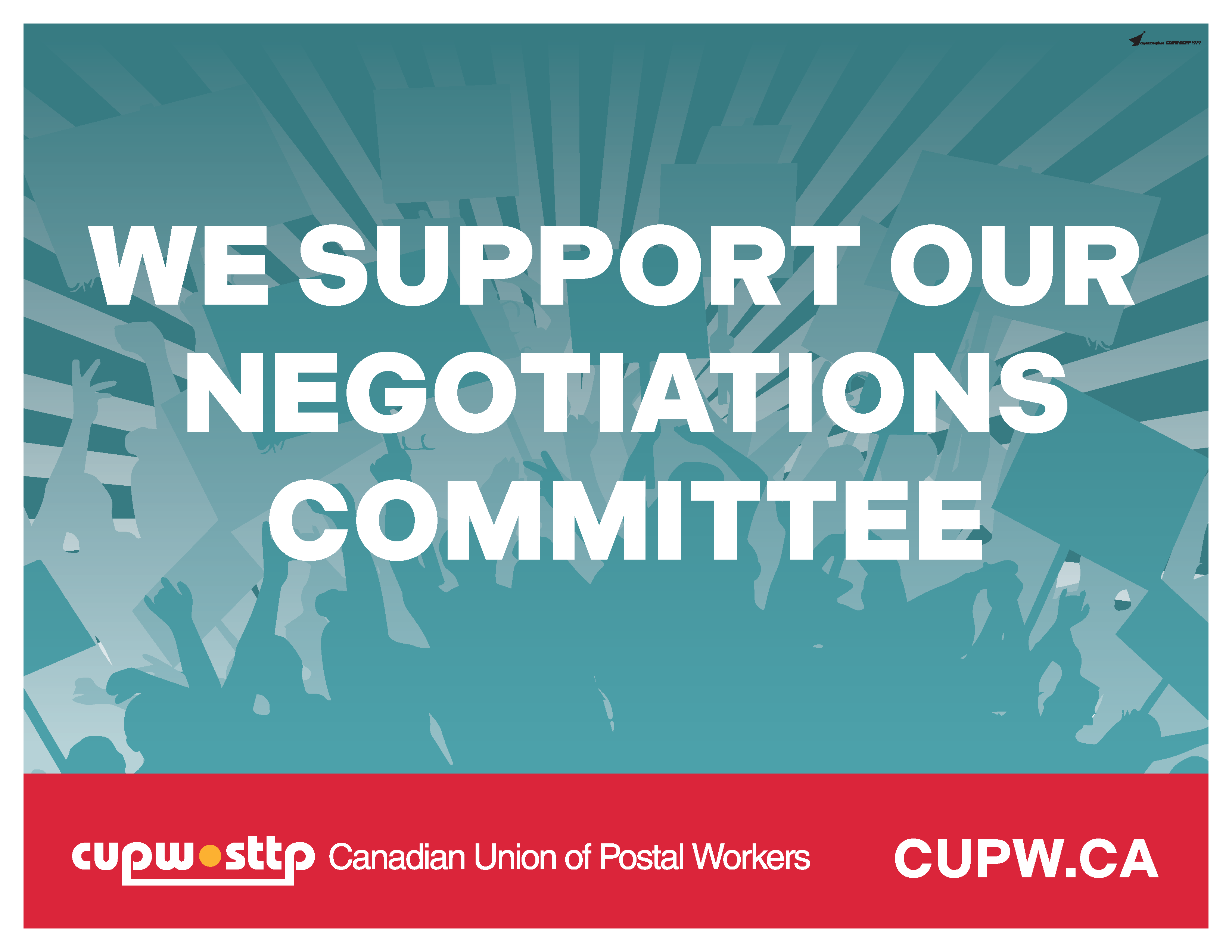
Thursday December 21 2017
Last Round of previous Negotiations
In 2016 we reached agreement with Canada Post on new dimensions and weights for unaddressed admail (aka neighbourhood mail, householders). The agreement included changes in per-piece payments – increases and decreases – to gain increased time values for the preparation work.
Time values are the basis for route structuring, which determines the size of a carriers’ route, so incorporating more work into the route measurement system – rather than the per-piece payments – means better routes: less overtime on your own route, more inside time, and less overburdening throughout the system.
We also gained the right to prepare admail at the end of the day, while being paid your hourly rate of pay and including overtime. Supervisors cannot deny overtime for admail preparation as long as you follow the correct process.
This is the chart from
Bulletin 185 (September 12, 2016)
showing all the new specifications:
NEIGHBOURHOOD MAIL SPECIFICATIONS

Changes take effect January 15, 2018
Along with the shift from per-piece payments, you’ll get a time allowance for preparing and collating unaddressed admail, whenever you’re delivering 1.5 sets or more per week (instead of the previous trigger of 3) – so the majority of routes will get it. It’s based on the number of complete admail sets delivered, and your number of Points of Call.
Bulletin 189 (September 26, 2016)
explained how the time value is calculated.
Why Did We Negotiate These Changes?
The reason is job security. We understand that there’s a lot of room for expansion in this market which generates growth and secures our jobs. Canada Post wanted to negotiate new dimensions and weight specs to support this growth. We negotiated changes that allowed some increases in size and weight, but increased time allowances to help prevent job loss in restructures, provide better health and safety protection around admail, and increased time allowances for admail prep, which means less time outside.
You’ll see short-term changes in your pay, both positive and negative, and we hope this bulletin addresses your questions about those. But you should know we’ll also benefit in the long term from the changes. The issue of overburdening will be discussed at length during the current round of bargaining to find solutions that allow us to do this work safely and with the appropriate time built into our routes.
In Solidarity,
Mike Palecek
CUPW National President
